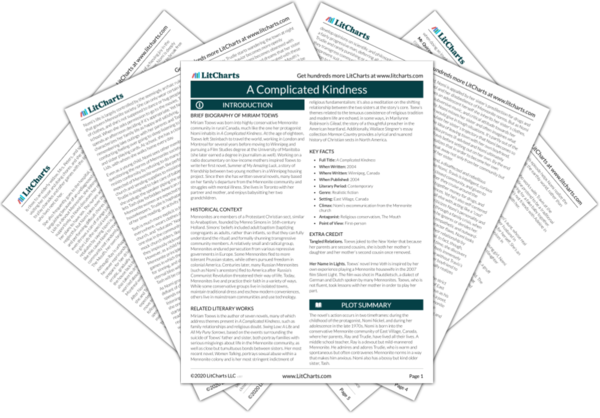Trudie’s participation in this small, humble ritual suggests that even though she’s skeptical of Mennonite life, she retains a sense of religious devotion. For her, true faith is separate from a community centered around dogma, which is represented by the handshaking after church that Trudie always eschews.
